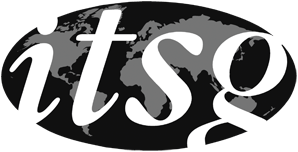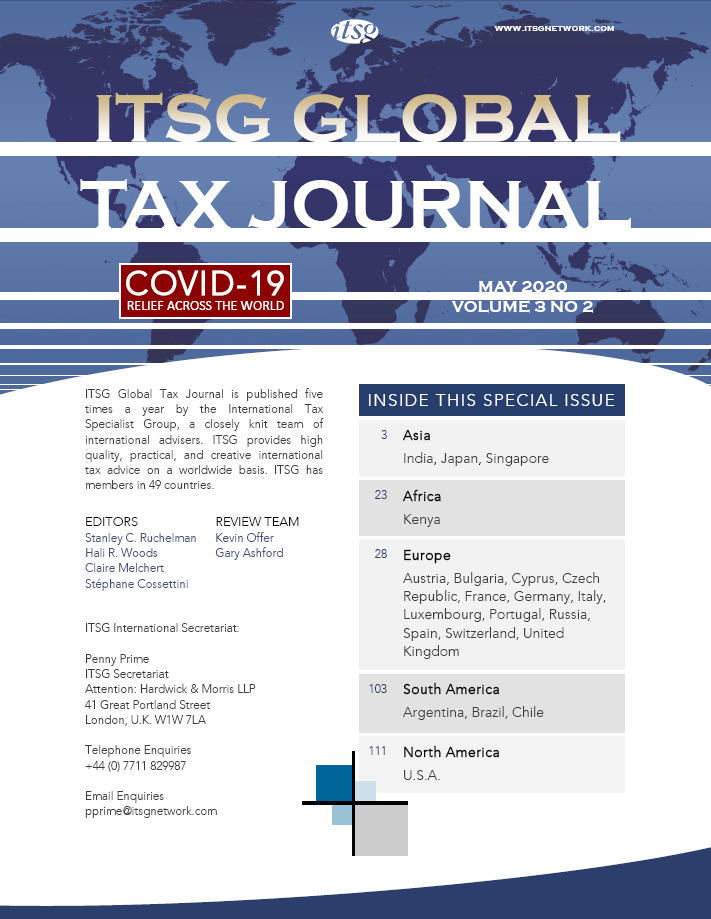Key highlights of economic measures in India in the wake of the COVID-19 pandemic
14 April 2020
The COVID-19 outbreak has created a worldwide health emergency and in anticipation of a major crisis, the Indian Prime Minister had announced a nation-wide lockdown (excluding essential commodities) for 21 days from 25 March 2020 to 14 April 2020. In a telecast to the nation on 14 April, the Prime Minister announced an extension of the lockdown till 3 May 2020.
Lockdown 2.0 will involve a strategy for continuous monitoring of COVID-19 cases in every city, town, and district till 20 April 2020. Based on the data collected, there may be a gradual relaxation of norms in certain zones in order to partially commence economic activity. Detailed guidelines in this regard were released on 15 April. The focus of the guidelines is largely on aiding farmers in the ongoing harvest season and providing support to daily wage earners. While a substantial economic stimulus package is expected to be provided by the Indian Government in the next few weeks, no official announcement has been made yet.
Earlier, the Indian Government had announced several relief measures for the lower sections of society as well as some relaxations in its policies, particularly relating to statutory and regulatory compliances for business.
We summarize below the key highlights of the tax and regulatory measures announced by the Indian Government:
Direct taxes
- A special fund, Prime Minister’s Citizen Assistance and Relief in Emergency Situations Fund’ (‘PM CARES Fund’) has been set up to accept donations in order to provide relief to people affected by COVID-19. The donations to this fund made up to 30 June 2020 will be eligible for a 100% deduction in FY 2019-20 (1 April 2019 to 30 March 2020).
- The due date for filing an application and payment of tax under the “Tax Amnesty Scheme,” Vivad se Vishwas scheme, which was recently introduced by the Government to reduce litigation, has been extended from 31 March 2020 to 30 June 2020. The additional tax of 10% which was earlier payable if the tax payments were made on or after 1 April 2020 is now applicable to tax payments made on or after 1 July 2020.
- The due date for filing a delayed or amended income tax return for FY 2018-19 (1 April 2018 to 31 March 2019) has been extended from 31 March 2020 to 30 June 2020.
- Keeping in mind the fact that cash flows have been affected due to the lockdown, the due date for making various investments eligible for a tax break for FY 2019-20 has been extended from 31 March 2020 to 30 June 2020. Eligible investments include life insurance and Mediclaim premiums, contribution to pension funds, charitable donations, investments in eligible exemption schemes in respect of capital gains, etc.
- The due date of commencement of operations for Special Economic Zone (‘S.E.Z.’) units which are eligible for certain tax exemptions, has been extended from 31 March 2020 to 30 June 2020, for those units that have received the necessary approvals on or before 31 March 2020.
- The validity of certificates for lower tax withholding issued for FY 2019-20 has been extended to 30 June 2020 for those taxpayers whose applications for FY 2020-21 are pending for disposal with the tax office. Further, the taxpayers that received the certificate for FY 2019-20 but did not apply for one for FY 2020-21 will be granted the extension provided they submit their application by email to the tax office under the specified procedure. Further, a tax at the rate of 10% will be withheld from payments made to non-residents having a permanent establishment in India who neither have a certificate for FY 2019-20 nor have applied for a certificate for FY 2020-21. The withholding will remain in effect till 30 June 2020.
- The interest rate on failure to timely pay the income tax, withholding tax, tax collected at source, Equalization Levy, Securities Transaction Tax, etc. which are due for payment between 20 March 2020 and 29 June 2020, has been reduced from 12% or 18% p.a., as applicable, to 9% p.a. Further, penalty proceedings will not be initiated in case of non-payment of such taxes.
- In order to provide immediate relief to business entities and individuals, the Government has decided to immediately issue all pending refunds up to INR 0.5 million (~US$ 7,000).
- Various due dates pertaining to issue of notices, intimations, orders, appeals, and completion of proceedings by the tax authorities have been extended to 30 June 2020.
Indirect taxes
- The Government has allowed entities with annual turnover of less than INR 50 million (~US$ 0.7 million) to file their monthly Goods and Services Tax (‘G.S.T.’) returns for the months of March, April, and May 2020 by the end of June 2020, instead of in the immediately following month, without the levy of interest or penalty. However, for other entities, a reduced interest rate of 9% p.a. will be charged effective 15 days after the due date.
- The due date for filing the annual G.S.T. return for FY 2018-19 has been extended from 31 March 2020 to 30 June 2020.
- For FY 2020-21, the due date to elect the G.S.T. Composition Scheme has been extended to 30 June 2020. In the absence of this relief, the election should have been made before 31 March 2020. For those already covered under the G.S.T. Composition Scheme, the due dates for making tax payments for the last quarter and submitting the annual return for FY 2019-20 have been extended from April 2020 to 30 June 2020.
- Tax refunds under the G.S.T. and Customs law will be immediately issued with the objective to provide immediate liquidity to taxpayers.
- The Government had previously introduced a dispute resolution scheme to settle disputes under the erstwhile indirect taxation regime. Payments covered under this scheme can now be made till 30 June 2020 without paying any additional interest.
- To ensure that the export and import procedures do not get adversely affected by the reduced working capacity, the Government has announced that Custom clearances will be available around the clock till the end of June 2020.
- In view of the irregular work schedule, various due dates under the G.S.T. and Customs law for issue of notices, approvals, appeals, furnishing of returns, and other compliances have been extended to 30 June 2020.
- The validity of the 5-year Foreign Trade Policy of Government of India, which was valid up to 31 March 2020, has been extended by one year, i.e., up to 31 March 2021.
Corporate law updates
- The Ministry of Corporate Affairs (‘M.C.A.’) has classified donations to PM CARES Fund as an eligible Corporate Social Responsibility (‘C.S.R.’) activity in order to encourage corporations to make donations to the said fund.
- The M.C.A. has waived the late filing fees for all documents, returns, or statements to be filed during a moratorium period between 1 April 2020 and 30 September 2020. Further, the M.C.A. also launched a “Companies Fresh Start Scheme” giving a one-time opportunity to defaulting companies to furnish pending documents between 1 April 2020 and 30 September 2020 without paying any penalty.
- The maximum permissible gap between two board meetings has been extended from 120 days to 180 days. The requirement of holding board meetings with the physical presence of board members for approval of financial statements, board reports etc. has also been relaxed till 30 June 2020 by permitting them to do the same using video conferencing or other audio-visual means. Further, the requirement for independent directors to conduct at least one meeting without the presence of other directors has also been relaxed for FY 2019-20. The non-fulfilment of the condition that at least one director of a company should have been present in India for 182 days or more will not be treated as a violation.
- In anticipation of the lockdown and irregularity in working conditions, the M.C.A. released a form for companies to determine their readiness if their employees need to work from home.
- Various relaxations have been provided to companies that are required to invest in certain specified debentures or deposits keeping in mind irregularities in cash flows.
Securities market
- The Securities and Exchange Board of India (‘S.E.B.I.’) has relaxed certain provisions for listed entities (including Real Estate Investment Trusts and Infrastructure Investments Trusts).
- Additional time limit ranging from 21 days to 90 days beyond the respective due dates has been provided for various reporting and filing requirements relating to investor complaints, shareholding pattern, meetings between committees, corporate governance, listing obligations, Foreign Portfolio Investors (‘F.P.I.s’), Annual General Meetings, etc.
Banking regulations
- The central bank of India - Reserve Bank of India (‘R.B.I.’) has reduced the Repo rate from 5.15% to 4.40%, the reverse repo rate from 4.90% to 4.00% and the Cash Reserve Ratio from 4.00% to 3.00% to infuse liquidity into the economy.
- The R.B.I. has permitted all commercial banks, Non-Banking Finance Companies and rural banks to grant a moratorium period of 3 months to all term loans (including agricultural loans). The moratorium period will apply to all payments relating to principal or interest, mortgage payments and credit card dues falling between 1 March 2020 and 31 May 2020. However, interest will continue to be charged during the moratorium period.
- In respect of working capital facilities such as overdrafts or cash credits, lenders have been permitted to defer the recovery of interest falling between 1 March 2020 and 31 May 2020.
- The R.B.I. emphasized that such rescheduling of payments between the moratorium period shall not affect the asset classification or the credit rating of the borrower to ensure that borrowers can “tide over the economic fallout due to COVID-19”.
- The R.B.I. has notified that the limit for investment in corporate bonds by Foreign Portfolio Investments has been increased to 15% of outstanding stock for FY 2020-21. It also notified a “Fully Accessible Route” permitting non-residents to invest in Government securities with effect from 1 April 2020, without any quantitative limit.
- It is noteworthy that the R.B.I. did not delay the amalgamation schemes of Public Sector Banks, which will come into force with effect from 1 April 2020.
Other measures
- The Central (Federal) Government has approved a deduction of 30% in the salary of Members of Parliament for a period of one year beginning from 1 April 2020. The monetary savings will be deposited into the Consolidated Fund of India to fight COVID-19. The officers and staff of the Ministry of Finance, including the officials of Public Sector Banks have pledged to donate a day’s salary, aggregating to INR 4,301 million (~US$ 57 million), to the PM CARES Fund.
- The Indian Railways has successfully converted 2,500 coaches to fully equipped isolation centers. It has further supported the fight against the pandemic by running special “Parcel” trains for the transport of medical supplies and food. Similar transportation facilities have also been provided by the Indian Air Force.
- The Employees’ Provident Fund Organization (‘E.P.F.O.’) has released an online application form, using which, the members of the fund can withdraw 75% of the amount in their fund, restricted to a maximum amount of 3 months’ wages.
- The Insolvency and Bankruptcy Board of India has increased the minimum amount of default by corporations to INR 10 million (~US$ 0.13 million). It has further clarified that the period of lockdown shall not be counted in any timeline which is a part of the Corporate Insolvency Process.
- The Government has extended the date for renewal of third-party motor insurance and health insurance policies to 21 April 2020 for those policies expiring between 25 March 2020 and 14 April 2020.
- The Government has clarified that any disruption in supply chains with any country due to COVID-19 would be covered under “Force Majeure”.
- The Life Insurance Corporation of India has clarified that claims relating to COVID-19 deaths will be processed at the earliest and such claims will not be excluded by covering them under “Force Majeure”. Apart from this, the regulatory body for insurance companies, the Insurance Regulatory and Development Authority of India, has provided an additional grace period of 30 days for renewal of health insurance policies.
Relief package by the Indian Government
The Finance Minister announced a relief package of INR 1,700 billion (~US$ 23 billion) to help the lower sections of society in fighting the battle against COVID-19, which includes the following:
- An insurance cover of INR 5 million (~US$ 7,000) per health worker will be provided in the event of loss of life of any health worker on account of COVID-19 duty or while treating the COVID-19 patients. Approximately 2.2 million health workers are covered under this scheme.
- Approximately 800 million indigenous people will get specified quantities of wheat, rice, and pulses free of cost for a period of three months.
- Monetary assistance has been announced for farmers, construction workers, women who are bank account holders under a specified scheme of the Government, indigenous senior citizens, widows, and individuals with special needs.
Industry specific regulations
Petroleum, Oxygen, and Gas industry
- The Petroleum and Explosives Safety Organization and the Ministry of Commerce and Industry have issued various directions to ensure uninterrupted manufacturing, transportation, and storage of medical oxygen to hospitals and healthcare facilities.
Power sector
- The Power Ministry and the Ministry of Railways and Coal have ensured around the clock supply of power to all consumers, considering that 70% of power generation is from coal-based power plants.
- Directions have been issued to the Central Electricity Regulatory Commission to grant a moratorium of 3 months to Distribution Companies to make payments to electricity generating companies without levy of any late payment surcharge.
Pharmaceuticals sector
- The Department of Pharmaceuticals is working in close coordination with other ministries like the Ministry of Health and Family Welfare, Ministry of Commerce and Industry, Customs department, and Drug and Medical Associations to ensure regular manufacture, availability, and supply of medicines.
- Control rooms and helplines have been set up to ensure smooth communication with other departments to address various important issues arising from time to time.
Agriculture sector
- Shops dealing in agricultural machinery, spare parts, and repair services will be allowed to remain open to facilitate transportation of farm produce. Tea plantations have also been permitted to function at a 50% capacity.
May 12th Update
The Indian Prime Minister (‘Indian P.M.’) addressed the nation once again on 12 May 2020, which was his fifth address in connection with the COVID-19 pandemic. A gist of the key issues discussed by the Indian P.M. is given below for your reference:
- The Indian P.M. announced a financial package of approximately USD 300 billion, the details of which are expected to be announced by the Finance Minister beginning from today. However, the Indian PM did mention that this package will have a special emphasis on land, labour, liquidity and laws. Accordingly, some bold reforms are expected to be announced shortly. Further, this economic stimulus is targeted at farmers, labourers, small businesses, Micro, Small and Medium Enterprises (‘M.S.M.E.s’), cottage and rural industries and the middle class population.
- The above package of USD 300 billion is nearly 10% of the Indian G.D.P. and includes the measures announced earlier by the Indian Government and the Reserve Bank of India (India’s Central Bank).
- The Indian P.M.’s speech was focused on the theme of a Self-Reliant India, founded on five pillars as under:
- An economy poised for a quantum leap
- Infrastructure
- Technology driven systems
- A vibrant demography
- Demand and supply chain
- The Indian P.M.’s speech emphasised on local manufacture and local markets to meet local demand. In fact, he stressed that Indian consumers should be ‘vocal about local’.
- The current nationwide lockdown, which is in its third phase, is in force up to 17 May 2020. The Indian P.M. indicated the extension of this lockdown and mentioned that Lockdown 4.0 would be significantly different from the current situation with the easing of several restrictions, the details of which would be announced prior to 18 May 2020.

 Login
Login




















































